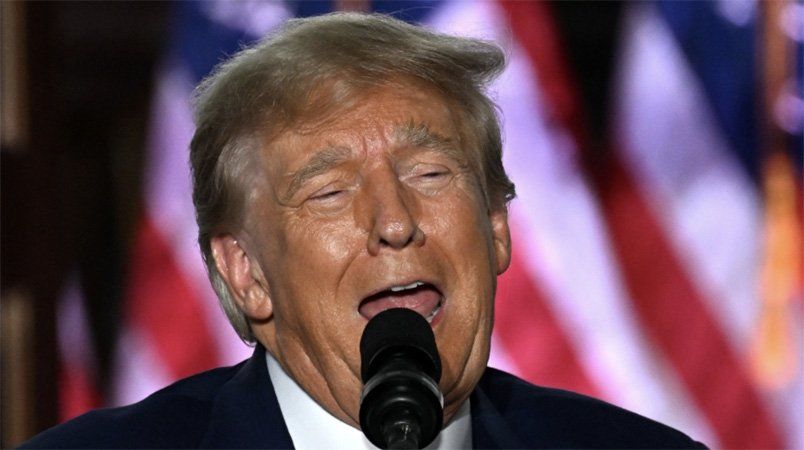With the Republican National Committee setting guidelines for the minimum requirements needed to participate in the GOP's 2024 presidential debates, a report from Politico suggested that, if those standards aren't changed, only Donald Trump and his four closest rivals will appear next month with the majority of candiadtes left watching on TV.
According to the report from Politico's Steven Shepard, a reliance on polls — and the type of polls used — is creating an uphill battle for low-polling candidates to set foot on the stage.
Noting that a candidate "must earn 1 percent in three polls" to join the debate next month, Shepard explained that the devil is in the details.
"The RNC’s criteria exclude virtually all of the public surveys conducted these days, meaning there may not be many opportunities for the lower-polling candidates to even hit that 1 percent," he wrote before adding, "According to the RNC’s guidelines, in order to count for debate qualifying, polls have to survey at least 800 'likely' primary voters or caucus-goers. That criteria aren’t just strict — they’re unrealistic."
As it stands now, besides Trump only Gov. Ron DeSantis (FL), former Vice President Mike Pence, ex-South Carolina Gov. Nikki Haley and Sen. Tim Scott (R-SC) would make the cut.
ALSO IN THE NEWS: Revealed: Trump also tried to pressure Arizona governor to overturn 2020 election results
According to Shepard, "As the 51-day qualifying period begins on Saturday, a review of FiveThirtyEight’s database of GOP primary polling nationally and in the four early 'carve out' states shows that only two polls out of 70 conducted in the previous 51 days would meet those requirements," adding, "With only a handful of polls, candidates like former Arkansas Gov. Asa Hutchinson who are only at 1 percent in about half of the prior surveys may not be able to get the three polls they need. And even candidates who are typically at or above 1 percent like former New Jersey Gov. Chris Christie or Vivek Ramaswamy — could be in danger of missing out if they register an inopportune goose egg."
There are also problems stemming from the decreasing number of voters who identify as Republicans, with the Politico report stating, "most major national polls start with a sample size of around 1,000 respondents, and Republican primary voters — like their counterparts in the other party — make up a minority of the country. Getting to a sample size of 800 primary voters would require doubling the size of most of these samples — at roughly double the financial cost."
Asked to defend the rules that could exclude a substantial number of presidential aspirants, a spokesperson for the RNC issued a statement saying, "We are ensuring quality polls are used to determine which candidates make the debate stage and we are confident that there will be enough polls for our candidates to qualify."
You can read more here.
Leave a Comment
Related Post
